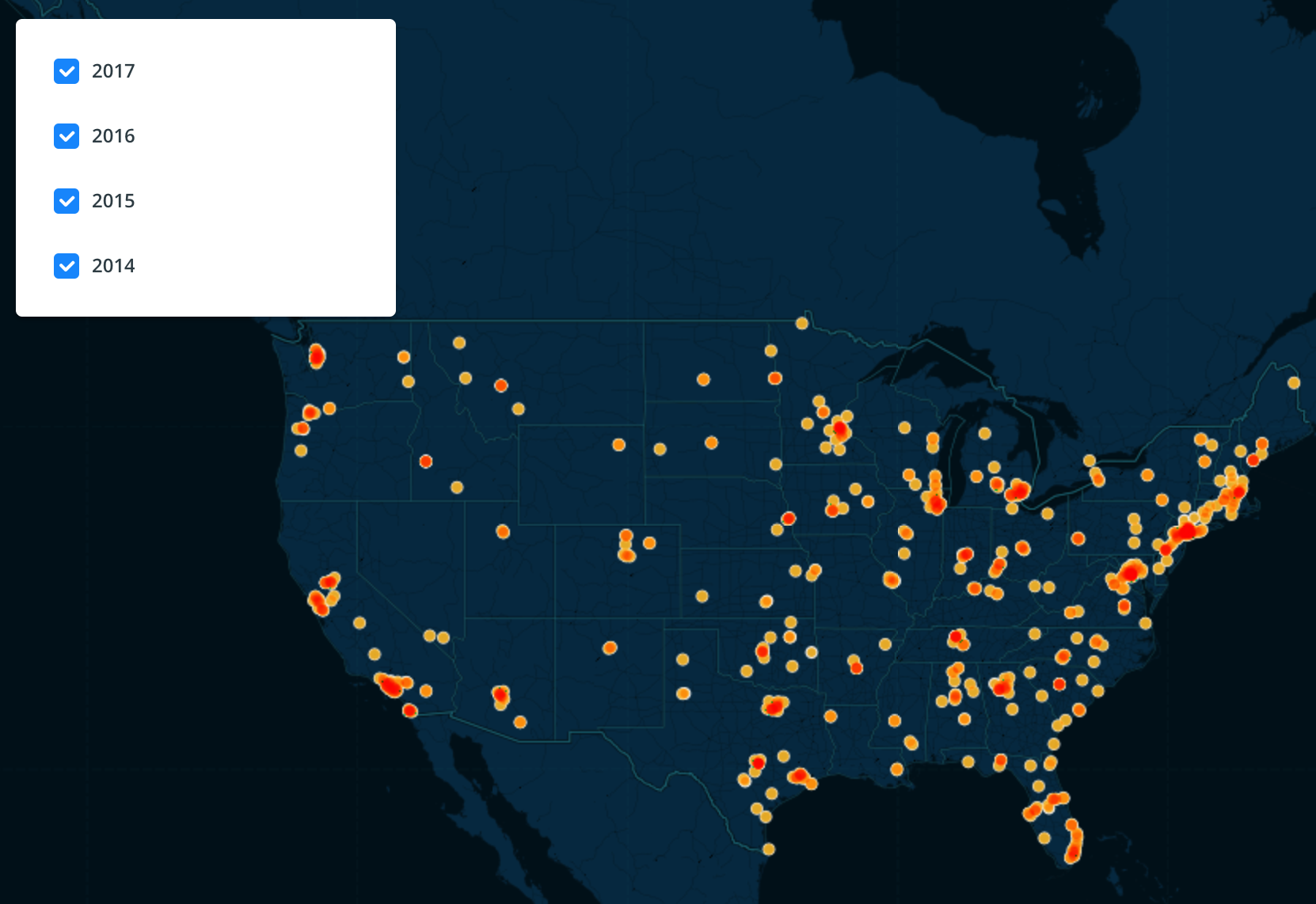Mapping Islamophobia

Inspired by a Digital Bridges-sponsored workshop on Postcolonial Digital Humanities led by Roopika Risam, Caleb Elfenbein is developing a multi-dimensional project on the experiences of Muslims in American public life that includes the website Mapping Islamophobia. More recently, Elfenbein has entered into a collaboration with Jason Harshman of the University of Iowa College of Education. With their collaborators, Elfenbein and Harshman are working to expand the scope of Mapping Islamophobia and to connect its materials to teachers and students in Iowa public schools. This video illustrates how this work has taken shape in classrooms.
Working backwards from the present day to 2001, Mapping Islamophobia documents and visualizes Islamophobic incidents. As the site puts it, “A key premise guiding our work is that every event or incident growing out of Islamophobic attitudes—including seemingly innocuous incidents of anti-Muslim graffiti and offhand comments, vandalism, verbal and physical assault, employment and other forms of discrimination, anti-Muslim protests and public campaigns, local ordinances and state-level legislation targeting Muslim communities in some way, and political rhetoric at the local, state, and national level—creates conditions inimical to free and voluntary participation in public life. For this reason we include a significant range of incidents and events.” The project is in the process of developing a companion dataset on Humanizing Public Life; this part of the project will document the work that American Muslims do to respond to Islamophobia. By juxtaposing the two datasets, the projects materials will encourage students and a wider public to consider the relationship between Islamophobic activity and the specific nature of American Muslim participation in public life.
Caleb Elfenbein and Jason Harshman have been supported by a Digital Bridges Summer Collaborative Grant. Digital Bridges has also supported a faculty-student pedagogical partnership between Elfenbein and Grinnell undergraduate Farah Omer; a Mentored Advanced Project by Grinnell undergraduates Thomas Aldrich, Sydney Banach, and Haseeb Haroon under Elfenbein’s direction; and the project assistance of University of Iowa graduate student Andrew Bloom. Earlier stages of the project’s development at Grinnell involved Digital Liberal Arts specialist Mike Conner as well as Grinnell undergraduates Chloe Briney and Julia Shafer.
